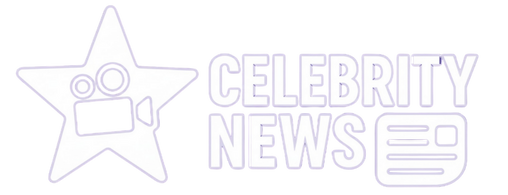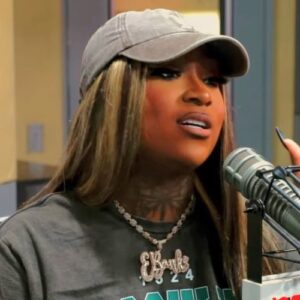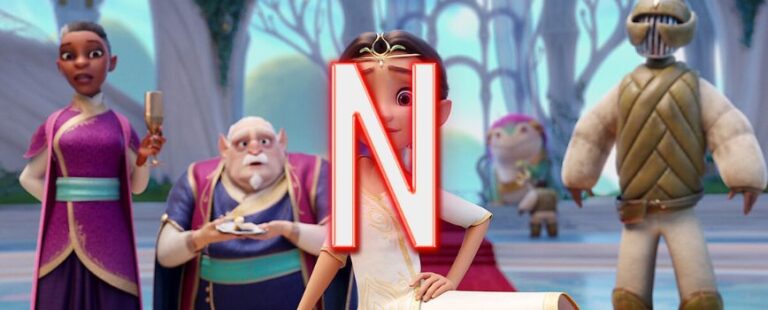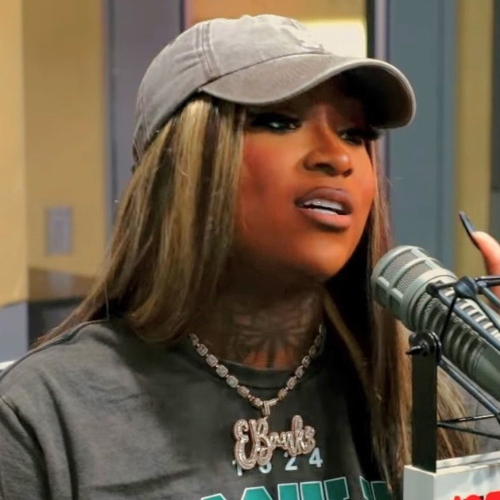Step aside, superhero sequels—2023’s Barbie didn’t just stroll in, she hijacked the summer and threw the internet into a state of pink-fueled chaos. Greta Gerwig’s gutsy overhaul of the iconic doll spun up a frenzy that left critics, actors, and everyday moviegoers practically bickering in the theater aisles. Whether you’re coming for the eye candy or the subversive wit (or just to see what all the shouting is about), everyone’s landed on the same truth: Barbie’s not just lighting up box offices, she’s splitting opinions right down the middle—and somehow collecting a pile of adoration along the way. Dazzling visuals? Check. Snappy one-liners? Absolutely. Heavy doses of feminism and cultural left hooks? Oh, she’s serving.
But don’t get it twisted—this isn’t just Saturday morning fare repackaged in glitter. Reviewers, even the tough ones, are treating Barbie like a cultural event. Gerwig refuses to make this just a doll’s day out. Instead, she laces big laughs with existential curveballs, the kind of “who even am I?” stuff you didn’t exactly expect from a story about a plastic icon. Flip through glossy magazine spreads, scroll indie blogs, tune into endless podcasts—Barbie’s now the blueprint for how “toy movies” can punch above their plastic weight.
Here’s the real fun: critics can’t seem to agree if Barbie is sheer genius or a bit much. They’ll praise the showstopping scenes, then turn around and spar over the film’s bolder messages—sometimes in the same breath. That nonstop volley of takes has pulled Barbie out of kiddie-movie territory and slammed her right into bigger conversations about what’s bubbling in society these days.
Understanding Barbie Movie Reviews
This movie isn’t just earning popcorn reviews; film nerds and Hollywood lifers are picking up on the layers Gerwig threaded in. She cobbles together a blockbuster that’s equal parts crowd-pleaser and acid-tongued commentary. The major reviewers—Variety, The New Yorker, you name it—are practically swooning over how it upends what folks expect from a “doll adaptation,” all while delivering a kaleidoscopic spectacle worthy of Barbie’s name.
On the technical front, critics are more or less in sync. The set design, the costumes—pick a detail, and someone’s probably described it as “otherworldly.” Margot Robbie? Ryan Gosling? Both are turning in performances that have reviewers tossing around words like “magnetic” and “hilarious” and “surprisingly moving.” Their chemistry? Apparently electric, if you trust the breathless buzz.
Barbie really finds her groove balancing between “art” and “blockbuster economy.” It’s not some two-hour ad for buying dolls; Gerwig’s team injected genuine ambition that—oddly enough—seems to work for anyone in the audience, from preteens to seasoned critics. Folks on the industry side keep marveling about how Barbie stays bonkers and bold without flattening out for mass approval.
| Review Outlet | Rating/Score | Key Praise Points | Main Criticisms |
|---|---|---|---|
| Roger Ebert | Positive Review | Visual spectacle, humor, subversive storytelling | Some find themes heavy-handed |
| Rotten Tomatoes | 88% Critics Score | Clever, funny, poignant with great message | Political messaging divisive for some |
| IMDb Users | 7.0/10 Average | Visual design, cast performances | Mixed reactions to feminist themes |
| Independent Critics | Generally Positive | Meta-humor, production values | Concerns about child appropriateness |
Visual Excellence and Technical Achievement
Honestly, Barbieland looks like somebody stuffed a suitcase full of bubblegum, glitter, and Oscar-grade set pieces and shook it out over every frame. Critics can’t help themselves—phrases like “a dazzling achievement” and “visual knockout” keep popping up. From giant plastic flamingos to outfits that fashionistas still can’t get over (that cowgirl look, right?), it’s like someone took playing dress-up to its logical extreme.
Word floating around LA is, Gerwig’s technical team sweat the details. Production designers sweated the shade of pink in every frame; wardrobe workers went for “ridiculously meticulous.” Some critics say the sets look so sweet you can almost taste the saccharine haze. As for the special effects, the movie’s smooth blend of the practical and digital is snagging early awards buzz—maybe a little louder than usual, actually.
But those eye-popping production choices aren’t just there to look pretty. Critics keep pointing out how the visuals work hand-in-hand with the film’s commentary—on beauty, perfection, and the sometimes stiff world of “plastic fantastic.” That back-and-forth between style and substance? For many reviewers, it’s Gerwig’s ace in the hole.
Performance Reviews and Character Analysis
If you’ve read even one review, you’ll know Margot Robbie’s performance is getting more love than a Malibu beach brunch spot in July. Critics can’t decide which is sharper: her comic timing or her ability to layer a hint of heartbreak behind the megawatt Barbie smile. Juggling pop icon camp with moments of real vulnerability? She nails it.
And Ryan Gosling, well…he basically took Ken from wallpaper status to full-blown comic star. Some folks are calling this his funniest work, like, ever. He brings a kind of clueless charm to Ken’s little existential crisis, almost stealing the movie—and not just in the silly musical numbers. Gosling’s Ken manages to be hilarious and weirdly soulful, which nobody really saw coming (let’s be honest).
It’d be a miss to skip the side characters. The supporting cast—Issa Rae, Simu Liu, America Ferrera, and the whole plastic crew—gets showered with praise for bouncing off each other with weirdly perfect energy. Every quick bit or emotional beat is landing, proof that Gerwig’s world-building extends to the tiniest detail—even if it’s a blink-and-miss Barbie cameo.
Critical Reception of Themes and Messages
Here’s where the conversation actually gets spicy. Barbie leans into issues of feminism, identity, and consumer culture with all the subtlety of a neon-pink freight train. Reviewers are mostly impressed that Gerwig can play in the pop sandbox and still pack in razor-sharp commentary about gender roles and societal expectations. Some love it. Some twitch.
There’s plenty of applause for how the film stirs up conversation around what it means to be “enough,” what gets sold to us, and who gets to decide. Still, a chunk of critics says the movie sometimes hammers its political points hard enough that there’s barely any subtext left—maybe not everyone’s looking for that at Saturday night movies.
The one thing uniting even the grumpier reviewers? Barbie isn’t afraid to roast herself. The film’s sense of humor, especially when aimed at its own legacy, keeps the debates from feeling heavy-handed. Satire, meta-humor—a dash of absurdity that keeps the deepest critiques feeling playful instead of like a lecture.
Cultural Significance
Suddenly, Barbie isn’t just a movie—it’s become a cultural shorthand. Writers are framing it as a milestone, not just because of the box office or the marketing juggernaut, but because it’s sparked real talk among families and coworkers and—inevitably—grandparents with Hot Takes™. People argue about what it means to “play,” and where gender and nostalgia fit in that equation.
Barbie also has this knack for luring in every age group. The dazzling Technicolor scenes hook little kids, while their parents (and, let’s be honest, more than a few critics) keep coming back for the hidden jokes and the big questions. This sweet spot is why reviewers keep calling Barbie a “rare generational event.”
Zooming out, the film is already slotting in as a new feminist marker in pop culture. Its massive receipts aren’t just bragging rights—they’re evidence audiences are reaching for something fresh, not just the same blockbuster paint-by-numbers. With the volume of think-pieces and the sheer noise on social media, Barbie’s cultural aftershocks probably aren’t dying down soon.
Latest Updates
Months out from the sugar rush of opening weekend and Barbie’s name keeps popping up. Film analysts are arguing over how Barbie might force other studios to take their “kids’ IP” projects a touch more seriously—maybe even, gasp, invest in artistry and actual themes. For Gerwig and company, the victory lap just keeps going.
Awards chatter? It’s relentless this year, with design and costume teams especially singled out. The original screenplay’s got a crowd whispering about possible golden statues too—so it’s not just the visuals hogging all the attention. As one wisecracking critic put it, this is the kind of movie that might elbow its way from “hit” to “iconic” status if trophies get handed out.
And what about Gerwig? The consensus seems to be that Barbie further cements her reputation for bending studio mandates to her vision, sneaking unexpected meaning into high-gloss entertainment. People are eyeing her next career move, sure—but most of the conversation stays glued to what Barbie means for pop filmmaking right now.
Final Thoughts
Boil down the reviews, strip away the hot takes, and what you’re left with is a movie that’s both a stunner and a brain-teaser. Critics sing about the visuals, the performances, and all the clever jabs—even as a few wrestle with just how *loud* the social commentary can get. Either way, the mix of praise and healthy disagreement has only amplified Barbie’s relevance, showing how a single, kaleidoscopic film can fire up whole new discourses.
There’s a clear pattern: Barbie works for the popcorn crowd but then sneaks in questions that get under your skin. No small feat. Gerwig and crew somehow serve up a movie that’s both silly and sharp-edged—proof that you really can have your cake and pick it apart too. Reviews keep rolling in, and the online squabbles aren’t running out of steam. Barbie, for now, just won’t fade back to the toy shelf.
No matter how you slice it, critics think Barbie’s set a new standard for ginormous franchise films that don’t want to be empty calories. Its mashup of smarts, spectacle, and sly chaos could end up as the new recipe for balancing box office with a little cultural disruption. And honestly? Hollywood’s probably already paying close attention.













